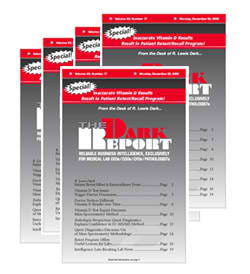FULL DISCLOSURE POLICY PORTAL
The Full Disclosure Policy is a government’s policy that requires local officials of provinces, cities, and municipalities to fully disclose particular financial transactions of the LGU to keep their constituents informed of how the LGU budget is managed, disbursed and used. It promotes honest, transparent, and orderly management of public funds. It helps minimize, if not totally prevent corruption and misuse of public funds. It increase the people’s awareness of the available public funds and the allocated amount for development projects in their localities.
Section 352, Republic Act No. 7160, otherwise known as the Local Government Code of 1991: “..posting
within 30 days from end of each fiscal year in at least three publicly
accessible and conspicuous places in the local government unit, a
summary of all revenues collected and funds received, including the
appropriations and disbursements of such funds during the preceding
fiscal year.”
· Republic Act No. 9184, also known as the Government Procurement Reform Act: “…posting of the Invitation to Bid, Notice to Proceed at Approved Contract in procuring entity’s premises, in newspapers of general circulation, the Philippine Government Electric Procurement System (PhilGEPS) and the website of the procuring entity.”
· Section 84, Republic Act No. 10155 (General Appropriations Act): “..Strict compliance with Sections 288 and 354 of RA No. 7160 and DILG Memorandum Circular No. 2011-134, entitled “Full Disclosure Policy relative to the posting of Local Budget and Finances, Bids and Public Offerings and Status of Programs and Projects”, is hereby mandated: Such required documents shall be posted on billboards in all publicly accessible and conspicuous places in the local government unit, in the LGU website and/or in print media of national or local circulation.
· Article III, Section 7 of the 1987 Philippine Constitution: “The right of the people to information on matters of public concern shall be recognized. Access to official records, and to documents and papers pertaining to official acts, transactions, or decisions, as well as to government research data used as basis for policy development, shall be afforded the citizen, subject to such limitations as may be provided by law.”
Documents in the FDP Portal was also posted in the bulletin board of the LGU at the lobby of the Municipal Hall.
PROCUREMENT PORTAL please click below...
Procurement is commonly defined as the acquisition of appropriate goods and/or services at the best possible price to meet the needs of the purchaser in terms of quality and quantity, time, and location. The procurement process formally starts from the point where the need to make a purchase to deliver an objective has been identified, and its process ends when the product has been used up or sold on, or the service contract has been delivered completely and the supplier or contractor is paid in full. The procurement function makes it possible for organizations to plan, acquire and distribute their needed resources - from paper and pens, to mobility items, IT systems and applications, security contracts, consultancies - to continue the business operations of the firm. In any organization, procurement is the largest or second-largest category of expenditure. In contemporary business parlance, the term procurement is an “umbrella” term which includes in its sphere concepts such as logistics and inventory management, online transactions, sourcing and outsourcing, supply chain management and operations, and eBidding. Procurement is an essential function that helps shape corporate strategy and success.
All organizations aim for good procurement practices and that means value for money – that is, buying something that is fit for purpose, taking into account the overall cost. A good procurement process should also be delivered efficiently, to limit the time and expense for the parties involved.
Procurement is also a major activity in government. In the Philippines, hundreds of billions of pesos is spent by the government to buy the goods and services it needs to operate the bureaucracy, carry out projects and deliver services to its citizens. The World Bank, a development partner, cites that for the past four years, an average of P121 billion worth of infrastructure, equipment, materials, supplies, and services pass through government procurement processes each year which accounts for 15% of the country’s annual budget.
Procurement plays a central role in delivering all Philippine government priorities – from the free drugs and medicines at public hospitals, the public school buildings, desks and chairs, to the guns and ammunitions of the military and police and the electronic systems that supported our recently-concluded automated elections.
The Philippines’ procurement system used to be described as cumbersome and prone to corruption as there were many outdated and inconsistent laws and many agencies dealing with issuance of guidelines and procedures in procurement. The public perception was that government procurement was characterized by fraud, inefficiency and lack of transparency. As a result, there was very low trust and confidence in the public procurement system.

